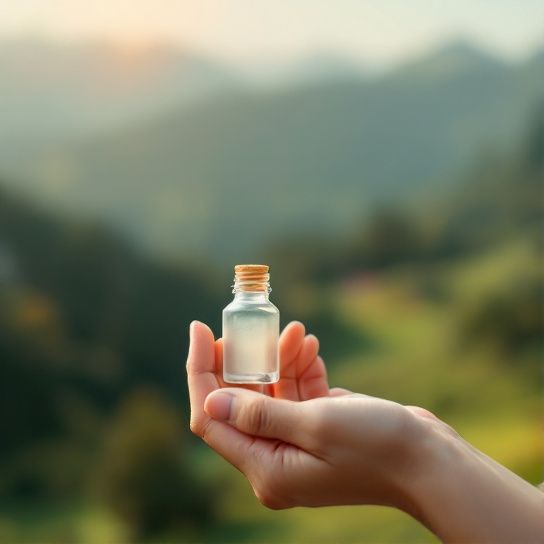Ever sat at a café, sipping your favorite sugary latte, and wondered how much sugar might be influencing your skin? Sugar seems to be everywhere, sneakily weaving its way into everything from snacks to drinks, and even condiments. Now, I’m not asking you to ditch the sugar completely—let’s be real, life without an occasional doughnut or a cupcake has its own set of challenges. But here’s the thing: too much sugar, especially over time, can lead to serious skin woes, not to mention those involving mood and energy.
Imagine this—as you indulge your sweet tooth, you could be unknowingly creating a hostile environment for your skin. Let’s dive deep, have a hearty chat, and see how the sugar train could potentially derail your care routine.
The Sugar Skin Conundrum: What’s Going On?
First up, let’s break down what sugar does once it’s in your system. Sugar affects nearly every cellular function in your body, but for today’s little tete-a-tete, we’re zoning in on how it impacts the skin. When you digest sugar, it enters your bloodstream and begins to bond with proteins in a process called glycation. Snazzy, right? Except glycation isn’t really your skin’s best friend. It’s rather the unwelcome guest who overstays their welcome and creates mayhem in its wake.
Understanding Glycation
So here’s the scoop: glycation results in the production of something called Advanced Glycation End Products, or AGEs. Think of AGEs as microscopic troublemakers. They accumulate, causing collagen and elastin, the proteins that keep your skin firm and supple, to become fragile. This fragility manifests as wrinkles, droop, and quite frankly, a complexion that appears tired and worn. Trust me, these uninvited interlopers don’t just RSVP for once—over time, they settle in and call it home.
Quick Takeaway:
Cutting back on glucose-rich foods can reduce AGEs formation. It’s like undoing an invite list to keep unwanted guests at bay.
But let’s not stop there. Between the glucose rollercoaster and subsequent impacts like inflammation and reduced elasticity, your skin might need some loving intervention.
The Impact of Insulin and Inflammation on Skin

Ever noticed how your skin acts out when stress hits, or after you’ve binged on remarkable yet sugars-laden treats? The link is real. That irritation could very well be tied to insulin. When your body consumes sugar, insulin spikes to tackle the oncoming sugar rush. This isn’t just a quick job—a little rush here often translates to harsh inflammation.
Why Insulin Spikes Matter
Repeated insulin spikes can lead to chronic, low-grade inflammation. This inflammation is as sly as it is destructive, chipping away at your skin’s vitality. Here’s something intriguing: there’s an established link between inflammation and conditions such as acne and rosacea. Could that carton of ice cream, however innocuous, be stoking the fires of inflammation in readiness for that pesky zit? Possibly, yes.
Tidbit for the Thoughtful:
Manage your sugar intake, give this a try with fruits that provide natural glucose versus processed sugars. It helps keep insulin levels steady and your complexion thankful.
Natural Skincare Essentials to Combat Sugar Effects
It doesn’t all have to be doom and gloom. There’s hope, and it comes plated with natural skincare options that sympathetically remedy sugar’s meddling ways.
1. Antioxidant-Rich Foods: Nature’s Defenders
Fruits and vegetables are like that buddy who’s always got your back. Cue blueberries, spinach, and kale—packed with antioxidants they combat free radicals and banana-smooth over the harshness of AGEs. Plus, who doesn’t love a vibrant salad bowl?
Try this:
Combine spinach, walnuts, blueberries, sliced apples, and a dash of orange juice as a dressing for a powerhouse salad—all oranges and greens for a nutrient-packed bite.
2. Hydration Station: Drink Up

Hydration and natural skincare are inexplicably linked. Water isn’t just your drink buddy; it’s instrumental for skin’s health, flushing toxins and keeping that dewy complexion just so. How about sipping on infused water? A cucumber and mint combo does wonders.
Get Hydrated:
Set reminders if you must, but drink enough water each day. Aim for around 8 glasses—your skin will show gratitude in shine and soft suppleness.
3. Probiotic Power
Here’s another game changer—introduce probiotics. These beneficial bacteria balance gut health, which in turn supports resilient and glowing skin. Whether it’s yogurt or a supplement, your skin will thank you.
4. Adequate Rest: Underestimated Magic
Sleep has a monumental role in natural skincare, minus the potions and lotions. Quality sleep enables repair mode to kick in, helping to unhitch the snarling grip of AGEs and fortify skin.
Setting Realistic Resolutions Over Makeup Masks
Staring at a skincare aisle, feeling overwhelmed? Think less about layering makeup to conceal the damage, and more about bearing the natural skin you’ve fostered through your choices.
Step-by-Step Natural Skincare Routine
- Cleansing Ritual: Start and end your day with a gentle cleanser to wash away impurities and prepare your skin for hydration.
- Moisturize Abundantly: Don’t skip this; creams lock in natural moisture. Look out for ones that feature vitamin E or hyaluronic acid.
- Sunscreen Savior: Catch this; sugar can exacerbate the harmful effects of the sun. Never dodge your sunscreen, ensuring it’s thrillingly guarded with SPF.
- Regular Exfoliation: About once a week, participate in shedding old skin cells. Try an oatmeal scrub or a honey paste—gentle yet effective—perfect for natural skincare.
- 5. **Incorporate Aloe Vera Basics: Is this just a garden blade? No way! Aloe vera is pure hydration heaven with an impressive anti-inflammatory kick. Rub it on and let its natural skincare prowess unfold.
Long-Term Impact and Embracing Imperfect Progress

Nobody’s perfect and neither is the journey toward healthier skin. Paradoxical at times, you might find yourself backsliding under the lure of sugar. That’s perfectly okay! The focus is holistic changes, welcoming gradual swaps over radical cuts.
Staying Accountable
Sometimes a buddy system helps—seek a meal partner who’s sharing this journey. When a tempting brownie is waved, you both smile and reach for the dark chocolate with joyful composure.
Manifesting Enduring Changes: A Recap
For the record, avoiding all sugar isn’t realistic or necessary. It’s about integrating wholesome habits and practicing moderation. Remember, skin isn’t asking for flawless renovations—just a platform compassionate towards changes you’re nurturing.
The Key Takeaway:
Balance life with acts of self-care, both internally and externally. Embrace good-for-you decisions, whether through biting an apple or applying a nourishing cream before bed.
You and your body deserve an era where natural skincare translates through your actions rather than the contents of a lavish spread. So next time you’re in the café line, maybe consider that espresso sans syrup. As daunting as these revelations about sugar and skin might be, there’s something sweet about standing on the junction of informed choices and natural skincare. Cheers to skin cultivated wisely and nurtured lovingly.
Frequently Asked Questions
What are the benefits of using natural skincare products?
Natural skincare products offer several benefits, including being gentler on the skin, containing fewer harsh chemicals and synthetic ingredients, and providing nourishment through vitamins, minerals, and antioxidants. These products can help reduce wrinkles, fine lines, and other signs of aging, and are often free from artificial colors and fragrances, making them suitable for sensitive skin[1][2][5>.
Which natural ingredients are commonly used in skincare and what are their benefits?
Common natural ingredients in skincare include aloe vera, coconut oil, shea butter, green tea, and chamomile. Aloe vera is soothing and hydrating, coconut oil is rich in fatty acids for moisturizing, shea butter improves skin elasticity and reduces inflammation, green tea is packed with antioxidants to protect against environmental damage, and chamomile has antioxidant and soothing properties to calm irritated skin[2][4][5>.
Are natural skincare products better for the environment compared to traditional skincare products?
Yes, natural skincare products are generally better for the environment. They are often biodegradable, free from synthetic additives, and have a lower environmental impact compared to traditional skincare products that contain harsh chemicals and preservatives[2][5>.
How can I incorporate natural skincare products into my routine, especially if I have sensitive skin?
To incorporate natural skincare products into your routine, especially if you have sensitive skin, start by choosing products with gentle, natural ingredients like aloe vera, chamomile, and green tea. Read ingredient labels carefully to avoid products with harmful chemicals, and consider DIY skincare recipes using natural ingredients. It is also important to patch test new products to ensure they do not cause any irritation[2][4][5>.
References

